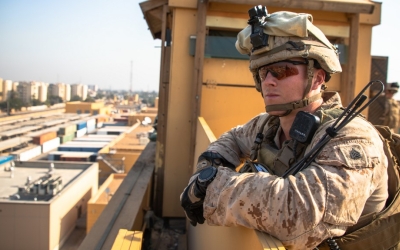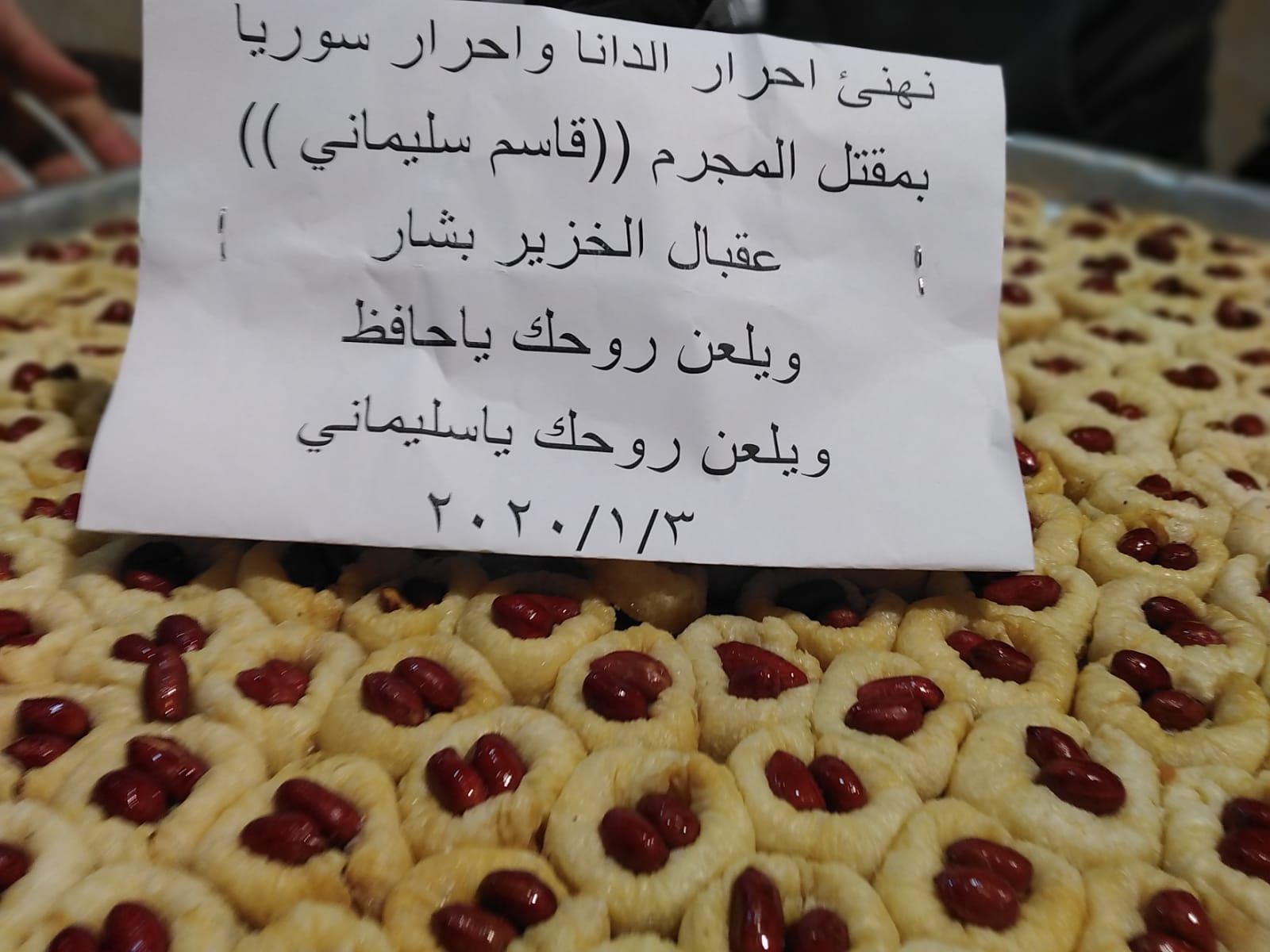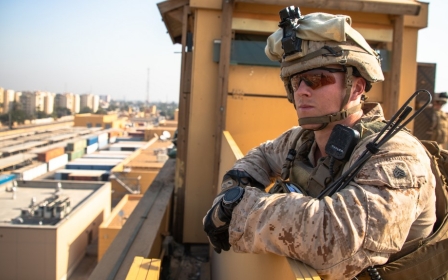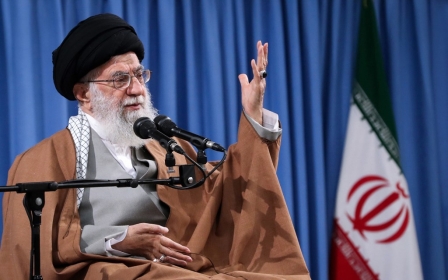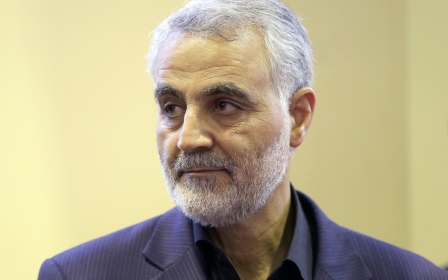Syrians in Idlib celebrate Qassem Soleimani's death with sweets and cakes
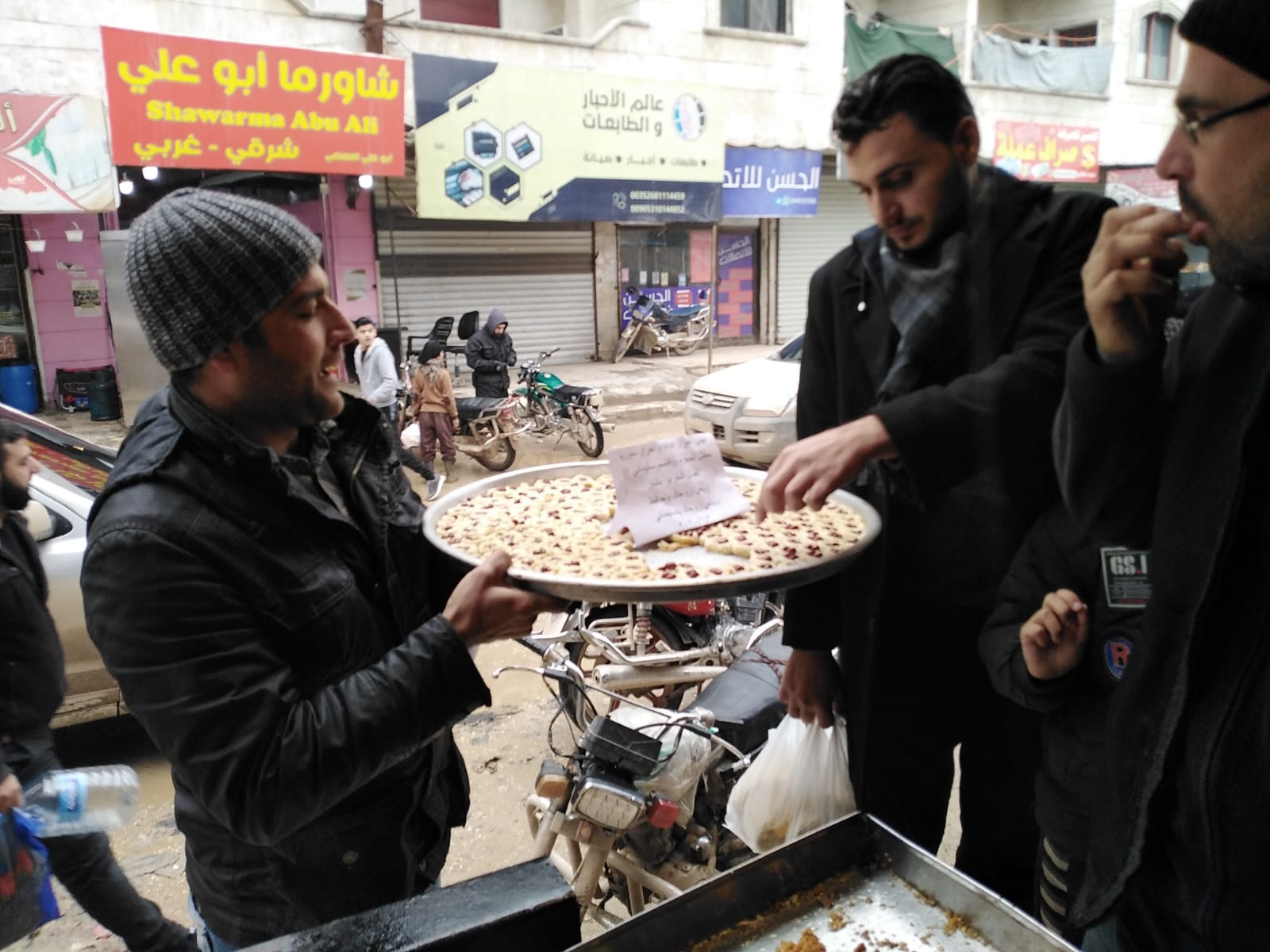
Thousands of Syrians, forced to leave their homes and seek refuge in Idlib - the last rebel-held stronghold in the country, have celebrated the death Qassem Soleimani with sweets and cakes.
Late on Thursday, American air strikes killed Soleimani, the commander of Iran's secretive Quds Force, and seven of his associates.
The Trump administration justified the strikes, first describing Soleimani as a ruthless killer, and then by saying that the raid was in response to "imminent threats to American lives."
Iran's Foreign Minister Mohammad Javad Zarif called the assassination an "act of international terrorism," while Iran's Supreme Leader warned that "severe revenge" awaited the killers.
However, throughout Friday, Syrians in Idlib could be seen celebrating their foe's demise by handing out Arab sweets and delicacies.
Several displaced Syrians told Middle East Eye that they were celebrating because under Soleimani's instruction, pro-Syrian government forces besieged a number of rebel-held towns and cities, starving them into capitulation.
"We ate cats during the siege and residents gave up their cars in exchange for a couple kilogrammes of rice," said Burhan, a civilian who fled the city of Zabadani in the Damascus countryside to Idlib.
"Many died of starvation because of Soleimani and his militia."
Muhannad al-Yamani, a displaced Syrian told MEE, that he was "thrilled" when news broke of Soleimani's death.
"We were pleased because he is one of the main reasons behind the displacement of many Syrians, especially those from Aleppo. He led operations against the free people of Syria in many cities. In Idlib, Aleppo, Homs and even Damascus. He had a big role in the killing of children and women and the displacement of many. God has punished him."
'Similar fate for Nasrallah, Assad and Putin'
Idlib, which is home to about three million people, is one of the last remaining holdouts of opposition to Syrian President Bashar al-Assad.
Backed by Moscow, Assad launched a blistering offensive against Idlib in April, in which thousands of civilians have been killed.
More than 200,000 Syrians have fled to the region in recent weeks and now depend on food, blankets and heating from humanitarian groups to survive.
Assad, who has been in power for 19 years, has repeatedly vowed to reclaim the territory, and his forces have continued to launch air strikes on the region despite a ceasefire agreement.
Last month, the New York Times published a report looking into Russian air raids on Idlib over a 12-hour period, and found that the Russian air force repeatedly bombed hospitals.
Moscow and Damascus deny claims of indiscriminate bombing of civilians, saying say they are fighting "terrorists".
"Today we woke up to the news of Qassem Soleimani's death and we thank God for that," said Mohammed Qetaz.
"Hopefully when we wake up tomorrow we will hear similar news on Hassan [Nasrallah], Bashar al-Assad and the [Vladimir] Putin."
The war in Syria, now approaching its ninth year, has devastated much of the country. An estimated half a million people have been killed and millions have been forced to live as refugees.
Middle East Eye propose une couverture et une analyse indépendantes et incomparables du Moyen-Orient, de l’Afrique du Nord et d’autres régions du monde. Pour en savoir plus sur la reprise de ce contenu et les frais qui s’appliquent, veuillez remplir ce formulaire [en anglais]. Pour en savoir plus sur MEE, cliquez ici [en anglais].


